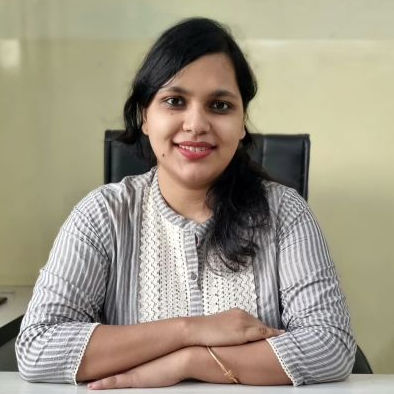Psoriasis in Children: Causes, Symptoms And Treatment Options
Explore the causes, symptoms, and treatment options for psoriasis in children. Learn how to manage this condition and support your child's skin health.

Written by Dr Sonia Bhatt
Last updated on 13th Jan, 2026
Psoriasis in children is a chronic skin condition that causes the immune system to become overactive, leading to inflammation and the rapid growth of skin cells. This results in thick, scaly patches of skin that can be red, itchy, and uncomfortable. Though psoriasis is often associated with adults, psoriasis in children can be equally distressing, requiring specific care and attention. Understanding the symptoms, triggers, and treatment options for psoriasis in children can help manage the condition and improve the child’s quality of life.
What is Psoriasis?
Psoriasis is a chronic autoimmune disease that leads to the accelerated growth of skin cells, resulting in thick, scaly patches. This occurs when the immune system mistakenly attacks healthy skin cells. While skin cells typically take 28 to 30 days to mature and shed, those with psoriasis experience a much faster turnover, often in just 3 to 4 days.
Psoriasis in children may present differently than in adults. The rashes tend to be less scaly and may appear more red and shiny. Common areas affected include the scalp, face, elbows, knees, and lower back. Guttate psoriasis, characterised by small, drop-like lesions, is more prevalent in children than in adults, often following a streptococcal throat infection.
Types of Psoriasis in Children
There are several types of psoriasis that can affect children, each with its own distinct characteristics and symptoms:
Flexural Psoriasis: Red, inflamed patches in skin folds like the armpits, groin, and under the breasts. These areas are smooth and shiny due to moisture and friction.
Scalp Psoriasis: Thick, silvery scales and red patches on the scalp, often causing intense itching and possible hair loss from scratching.
Nail Psoriasis: Pitting, thickening, discolouration, and possible detachment of the nails from the nail bed.
Acute Guttate Psoriasis: Small, red spots that appear suddenly, typically on the trunk and limbs, often following a bacterial infection like strep throat.
Chronic Plaque Psoriasis: Raised, red patches covered with a silvery-white buildup of dead skin cells (plaques), commonly on the scalp, elbows, knees, and lower back. These patches can be itchy and painful.
Erythrodermic Psoriasis: Severe reddening covering most or all of the body, with peeling skin that looks burnt. This type can be life-threatening and requires immediate medical attention.
Pustular Psoriasis: White pustules surrounded by red skin that can be localised or widespread, often causing severe discomfort.
Photosensitive Psoriasis: Lesions appear in sun-exposed areas, worsening with sunlight.
Guttate and flexural psoriasis are particularly prevalent in children, requiring specific attention for early and effective management.
What Causes Psoriasis in Children?
The exact cause of psoriasis in children is not fully understood, but several factors are thought to contribute to its development. The condition is linked to both genetics and immune system dysfunction:
1. Genetic Predisposition
Children with a family history of psoriasis or other autoimmune diseases are at a higher risk. Specific genes are believed to play a role in developing psoriasis in children, making them more susceptible to this condition.
2. Immune System Dysfunction
In children with psoriasis, the immune system attacks healthy skin cells, causing them to grow rapidly and accumulate. This accelerated skin cell production leads to the thick, scaly patches typical of the disease.
3. Environmental Triggers
Certain environmental factors may trigger or worsen psoriasis in children, including:
Infections (especially strep throat, which can trigger guttate psoriasis).
Stress, which can exacerbate flare-ups.
Skin injuries such as cuts, scrapes, or sunburn (a phenomenon known as the Koebner response).
Certain medications, like beta-blockers or antimalarials.Cold, dry weather, which can lead to dry, irritated skin.
How is Psoriasis in Children Diagnosed?
If you suspect your child has psoriasis, a healthcare provider, ideally a dermatologist, will perform a thorough examination of the affected skin. Psoriasis in children is usually diagnosed based on the physical appearance of the skin lesions and the medical history, including any family history of psoriasis and potential triggers such as recent infections or injuries. Sometimes, a skin biopsy (a small sample of the affected skin) may be needed to confirm the diagnosis.
Treatment Options for Psoriasis in Children
Although there is no cure for psoriasis in children, various treatment options can help control the symptoms and reduce flare-ups. The goal is to reduce inflammation, slow skin cell turnover, and keep the skin moisturised.
1. Topical Treatments
Topical treatments are the first line of defence for treating psoriasis in children. These include:
Topical corticosteroids: These are anti-inflammatory creams or ointments used to reduce redness and swelling. Low-potency steroids are generally recommended for children.
Vitamin D analogues: These help to slow down skin cell growth, a core issue in psoriasis.
Topical retinoids: These may be used to reduce scaling, although they need to be used cautiously in children.
Coal tar: Often used to reduce scaling and itching, though it may have a strong odour and can stain clothing.
Moisturisers: Regularly using gentle, fragrance-free moisturisers can help keep the skin hydrated and prevent flare-ups.
2. Phototherapy
Phototherapy (UV light therapy) may be recommended for children with moderate to severe psoriasis. In this treatment, the skin is exposed to ultraviolet light under medical supervision to slow down skin cell production and reduce inflammation.
3. Systemic Treatments
If topical and phototherapy are ineffective, systemic treatments may be necessary. These affect the entire body and are usually reserved for more severe cases of psoriasis in children. Systemic treatments include:
Biologics: These medications, usually administered via injection, target specific parts of the immune system to reduce inflammation and skin cell growth.
Oral medications: Drugs like methotrexate or cyclosporine suppress the immune system and may be used in severe cases.
4. Lifestyle and Home Remedies
In addition to medical treatments, lifestyle changes can help manage psoriasis in children:
Regular moisturising to keep the skin hydrated.
Lukewarm baths with added oatmeal or Epsom salts to soothe irritated skin.
Sun protection is achieved by using a gentle, fragrance-free sunscreen to prevent flare-ups caused by sunburn.
Stress management techniques like yoga or deep breathing exercises help reduce flare-ups triggered by stress.
Consult Top Dermatologists For Psoriasis Treatment
Potential Complications of Psoriasis in Children
Children with psoriasis are at a higher risk for several other health conditions, including:
Psoriatic Arthritis: This form of arthritis affects some children with psoriasis, causing joint pain, swelling, stiffness, dactylitis (swollen fingers and toes), uveitis (eye inflammation), and nail changes.
Obesity: Children with psoriasis often have a higher BMI, which can worsen their condition.
Cardiovascular Disease: Psoriasis is linked to higher blood lipid levels, increasing the risk of heart disease.
Mental Health Issues: The psychological impact of living with psoriasis can lead to anxiety and depression.
Inflammatory Bowel Disease (IBD): There is an association between psoriasis and IBD, including Crohn's disease and ulcerative colitis.
Celiac Disease: Children with psoriasis are more likely to have antibodies for celiac disease.
Regular monitoring and early intervention are crucial to managing these risks and improving overall health outcomes for children with psoriasis.
Conclusion
Psoriasis in children is a manageable but chronic condition. Early diagnosis and treatment can help control symptoms, minimise flare-ups, and improve your child’s overall well-being. If you suspect your child has psoriasis, consult a healthcare provider to develop a personalised treatment plan. With the right care, children with psoriasis can lead active and healthy lives.
For more information and resources on psoriasis in children, visit the National Psoriasis Foundation or speak to your healthcare provider.
Consult Top Dermatologists
Consult Top Dermatologists For Psoriasis Treatment

Dr. Sonal Jain
Dermatologist
9 Years • MBBS, MD Dermatology, Venerology & Leprosy
Kolkata
MCR SUPER SPECIALITY POLY CLINIC & PATHOLOGY, Kolkata
(25+ Patients)
Dr. Kavitha Killaparthy
Dermatologist
23 Years • MBBS,DIPLOMA(DERMATOLOGY,VENEREOLOGY,LEPROSY)
Hyderabad
JDS Skin & Hair Clinic, Hyderabad
Dr.j Girishma
Dermatologist
6 Years • MBBS MD DERMATOLOGY
Bengaluru
Apollo Medical Center, Marathahalli, Bengaluru

Dr. Pranoti Deshpande
Dermatologist
5 Years • MBBS, MD (Dermatology, Venereology and Leprosy)
Hyderabad
Apollo Hospitals D R D O kanchanbagh, Hyderabad
(175+ Patients)

Dr. Kaushiki Hajra
Dermatologist
5 Years • MBBS,MD(D V & L)
Kolkata
VDC Clinic, Kolkata
(75+ Patients)
Consult Top Dermatologists

Dr. Sonal Jain
Dermatologist
9 Years • MBBS, MD Dermatology, Venerology & Leprosy
Kolkata
MCR SUPER SPECIALITY POLY CLINIC & PATHOLOGY, Kolkata
(25+ Patients)
Dr. Kavitha Killaparthy
Dermatologist
23 Years • MBBS,DIPLOMA(DERMATOLOGY,VENEREOLOGY,LEPROSY)
Hyderabad
JDS Skin & Hair Clinic, Hyderabad
Dr.j Girishma
Dermatologist
6 Years • MBBS MD DERMATOLOGY
Bengaluru
Apollo Medical Center, Marathahalli, Bengaluru

Dr. Pranoti Deshpande
Dermatologist
5 Years • MBBS, MD (Dermatology, Venereology and Leprosy)
Hyderabad
Apollo Hospitals D R D O kanchanbagh, Hyderabad
(175+ Patients)

Dr. Kaushiki Hajra
Dermatologist
5 Years • MBBS,MD(D V & L)
Kolkata
VDC Clinic, Kolkata
(75+ Patients)
